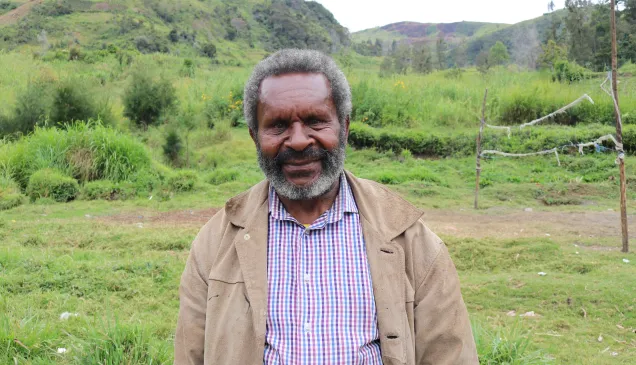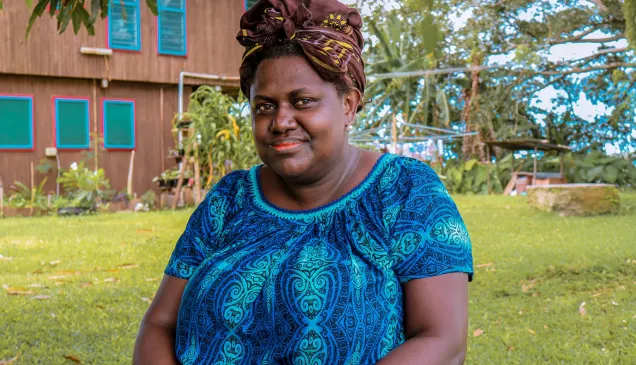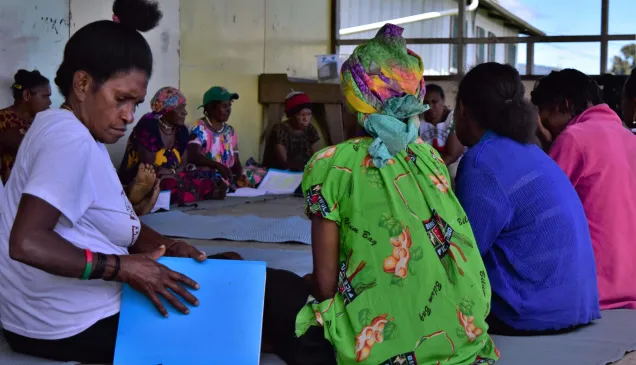Papua New Guinea: Walking back from death to life
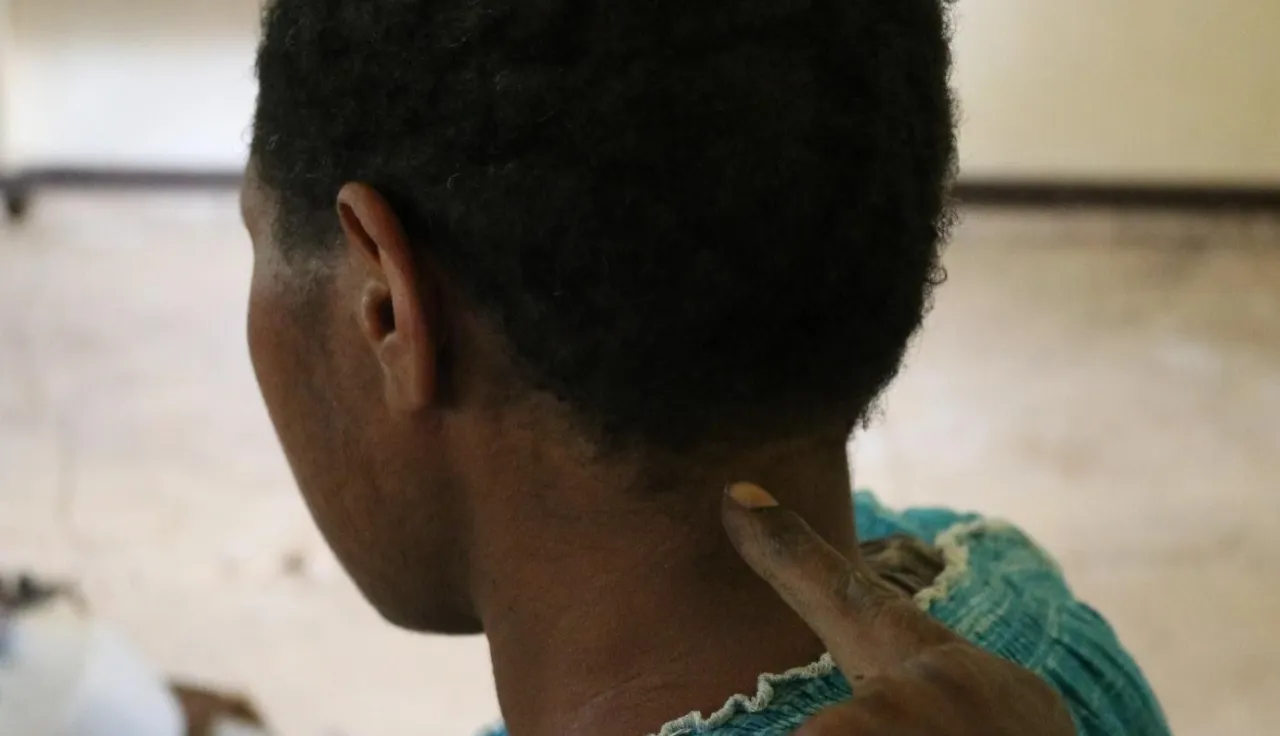
"I have walked on a journey to hell, lost and stripped of everything," says Warame Pokana, slowly reliving the details of July 2019 as she has done many times over in her mind. The slash marks on her left hand, legs and the back of her head begin to tell the tale before she starts speaking.
By a miracle Pokana survived the killing spree in which 18 people were massacred in Karita village of Tagali Local Level Government, Hela Province, Papua New Guinea. But she lost all her four children and a cousin sister in the inter-clan violence that Sunday morning.
Hacked, I collapsed into a pool of blood. The attackers assumed I was already dead and didn't check on me. I could barely see the people yet what had happened around me was clear in my mind.
Dodging the attackers, Pokana's husband, Andrew Paul, came looking for his family as soon as he could get into the village.
How he got me to the hospital is a story in itself. People outside Hela say Huli men are aggressive, not the kind who would care for their wives in such times. But my husband disproves that theory. He brought me back to life and I am forever grateful.
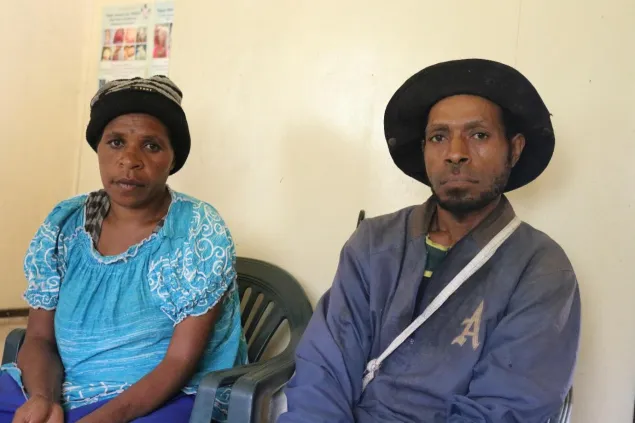
As Warame Pokana and her husband Andrew Paul share their story after the ICRC session in Karita. She says he brought her back to life.
Soft-spoken and humble, Paul is a hero of sorts in Karita for his tenacity in saving his wife's life. In a thick Huli-accented dialect, Paul shares his memory of the day.
When the attackers left, around 6 am, I rushed home to see my children killed and their bodies lying like pieces of soft logs washed ashore by a heavy tide in Tagali river. My wife was also lying there with blood all over her. I felt her pulse and realized she was still alive. From that moment on all I could think of was how to keep her alive. I even forgot about my dead children and focused entirely on her.
Paul carried Pokana across the wet savannah and the mountain to the other side where the Hedamari community live. There he got help to medevac Pokana to Tari Hospital. "Only God could have given me the determination I felt at that time despite how our lives had just been devastated. After one week of intensive care, my wife began to breathe again and I witnessed the miracle of death turning to life," he says.
His face almost glows as he goes on to tell the stories of how they experienced hope in the midst of their darkest times.
We will never forget how we lost the ones we treasured the most. We miss our children so much and regret not being able to save them or give them better protection. Their memories always bring both smiles and tears to us. But we are also recovering now, though it will take time.
He adds that they have been living with families in Hedamari because staying there reminds them of everything they went through.
Our hope has been to bring change in the communities in Hela through our story.
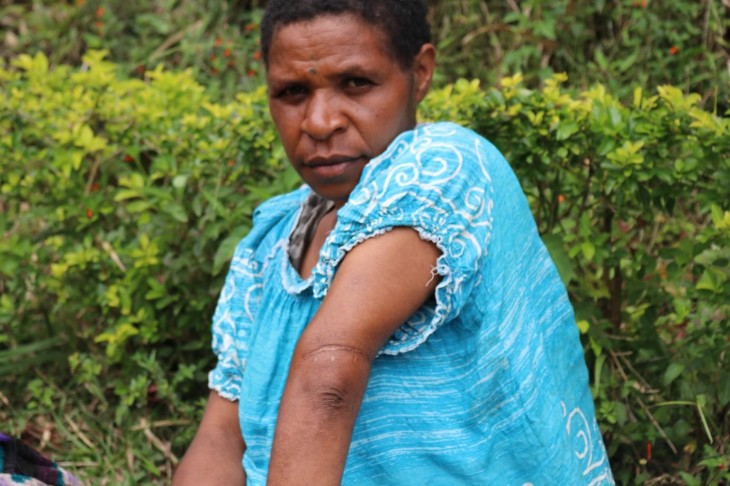
Warame Pokana says her left hand was slashed during the attack and held together only by the skin tissue. The arm is now numb and she cannot use it. CC BY-NC-ND/ICRC/Reuben Tabel
Pokana, who has been paralysed on one side because of her injuries, also talks about learning to pick up each day and resolve to look forward.
As a mother the pain of losing my children to such brutality is unbearable and I have bad nightmares every time I think of them. Also, I am like a disabled person now. I cannot walk, do house chores or gardening because one side of my body is numb. But I am grateful that I am not alone in this, my husband was there in the beginning and still provides the best care I can ever get.
While the couple has been supporting each other, Pokana says the International Committee of the Red Cross (ICRC) has also been helping them to overcome their fears and become more stable emotionally. The ICRC has been conducting Mental Health and Psychosocial Support (MHPSS) sessions that aim to reduce stress, promote positive coping mechanisms and increase the day-to-day functioning of those who witnessed the massacre.
We were not able to attend the first session but some women who were part of it shared what they had learned and helped us to see the positive side of life. I joined the second session and felt so relieved and energized. Though it will take time to let go of the pain, the breathing exercise that the ICRC volunteers taught us are helping to calm me whenever I feel low. They are helping me take small steps towards being healed.
The ICRC has conducted five sessions with 71 mothers in Karita recently. The MHPSS team is also working with the men in the community to face their emotional challenges.

